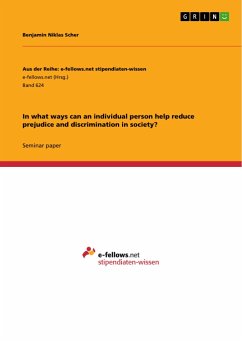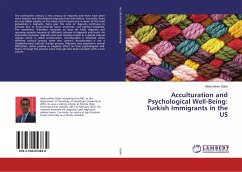In Germany, the relationship between Turkish immigrants and Germans without migration background is often characterized by negative views. Intergroup Contact Theory describes how social contact can improve relations between groups in conflict. This book examines a series of five tandem language classes that have never before been studied in an intergroup contact context. Applying the theory's principles, native Germans and Turkish immigrants taught each other German and Turkish supervised by a bilingual language teacher. Statistical analyses reveal a prejudice-reducing effect for course participants relative to a non-participating control group. This and other findings promote tandem language classes as a means to improve relations between host population and immigrants from the start.
Bitte wählen Sie Ihr Anliegen aus.
Rechnungen
Retourenschein anfordern
Bestellstatus
Storno









